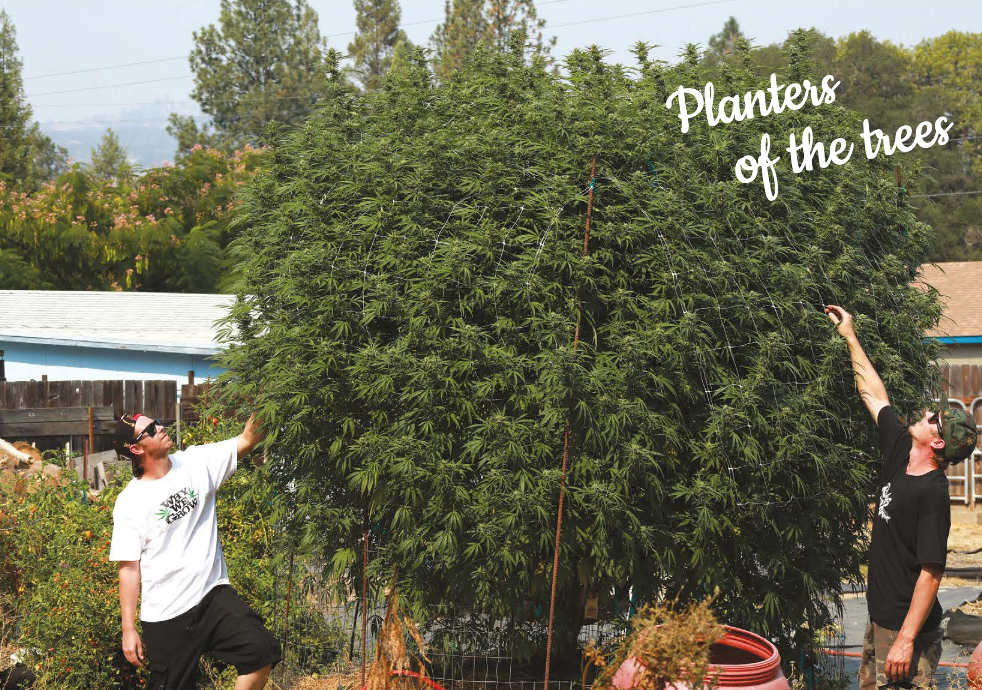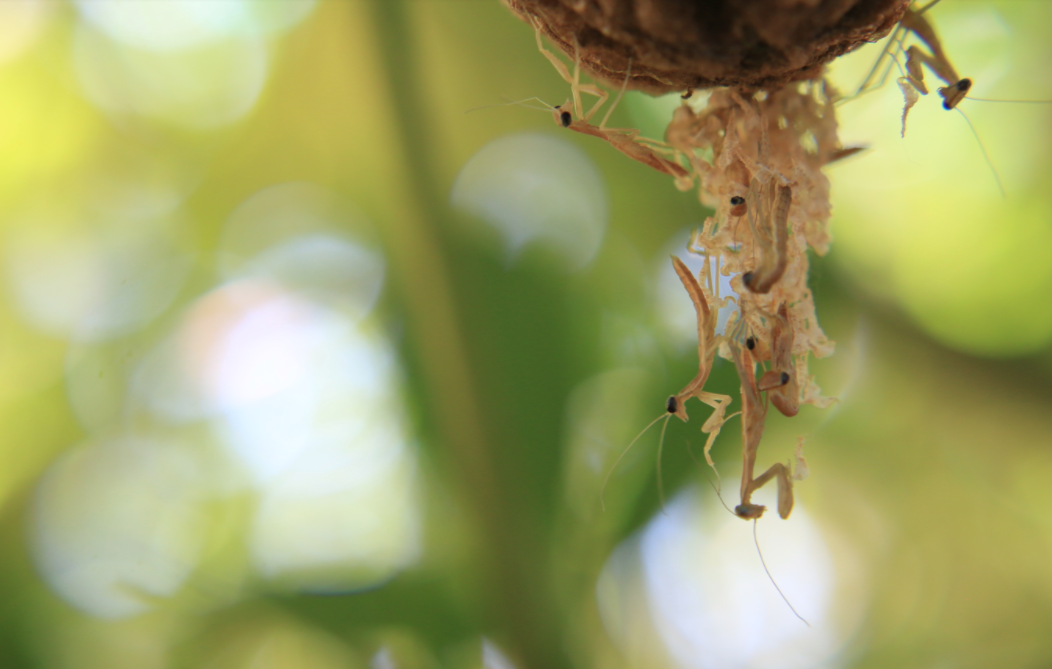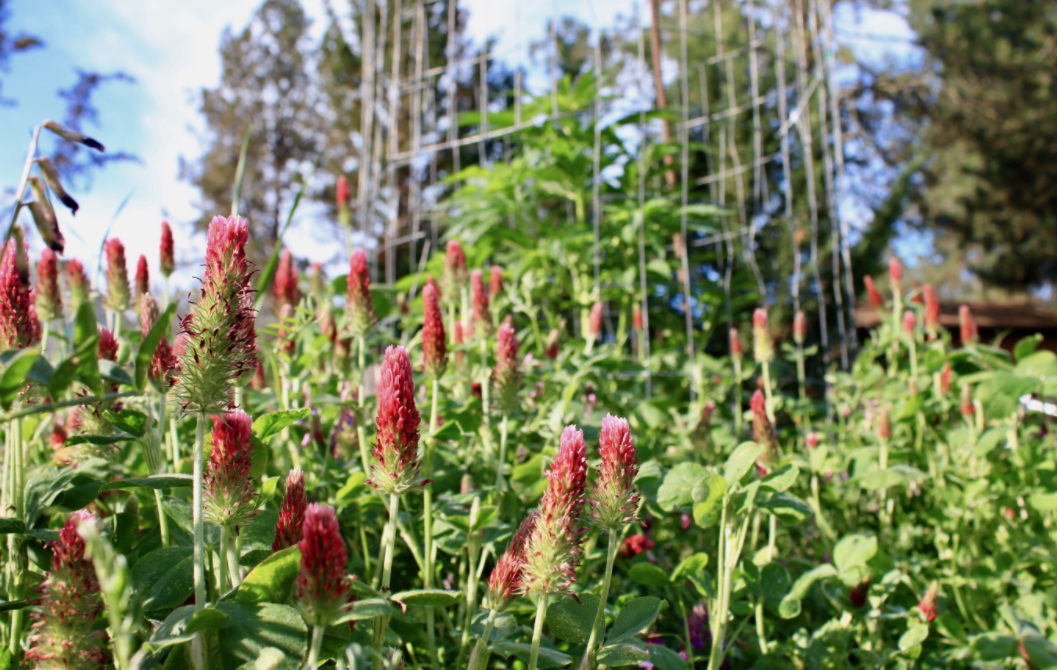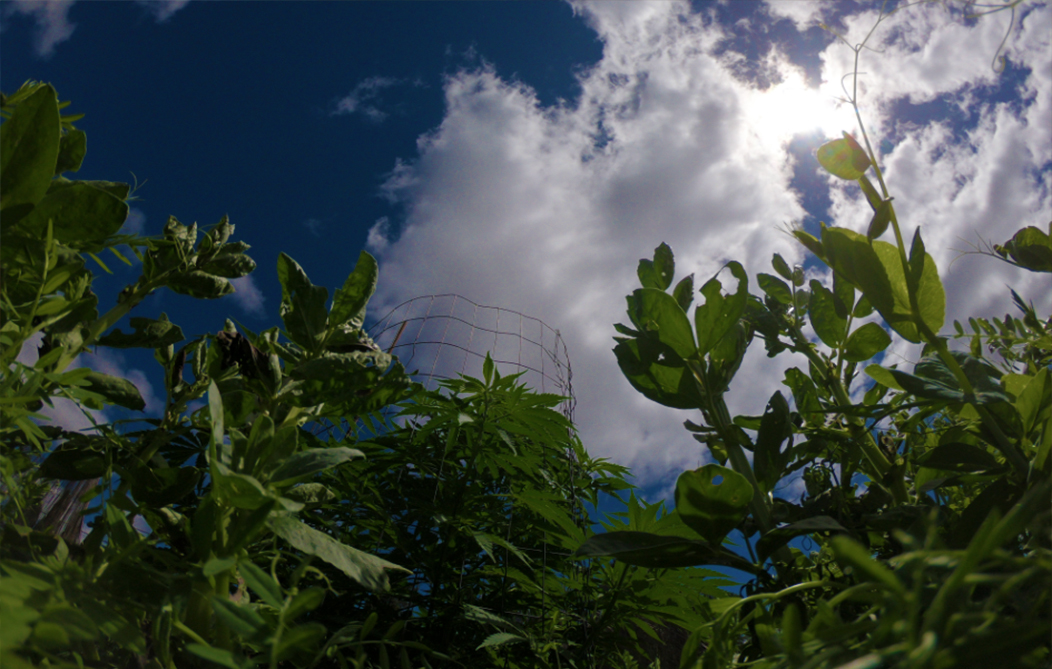No-Till Farming, By Mendo Dope

The Revolution will not be tilled
No-till farming is an agricultural technique for growing crops without disturbing the soil. Our good friend MN Nice explained it to us like this. What happens in a redwood tree forest? Is anyone tilling the soil and cleaning up fallen debris? How do these trees eat and survive with no one to help them grow? The answer is nature. When you let nature run it's course you can see the magic happen right in front of your eyes. Using this No-till style of farming you can literally help heal the planet while growing the cleanest garden in your own backyard and this is how.
It all starts with your base soil, the foundation of your grow
It is ideal to use your native soil but sometimes that isn't an option. What we have done in our personal grow is create a fresh start to build on using Big Rootz soil. When growing No-till it is all about feeding the soil not the plant. The soil is actually breaking down nutrients that will then be available for the plant to uptake. Through the use of dry amendments and teas you can literally bring your soil to life.
Some of the amendments we like to use are Kelp Meal, Crab Meal, Neem Meal, Glacial Rock Dust, Bat Guano etc. These amendments provide all kinds of food for the soil to thrive on. Trace minerals, macronutrients, nitrogen, phosphorus and calcium are needed for your soil to become truly alive. Brewing teas is a great way to add more life to your soil and there are many great tea recipes you can use in your garden. We have always loved Extreme Gardening teas along with their Mykos and Azos. Mykos is a natural and organic species of beneficial soil fungi that collects and stores nutrients and water increasing the uptake of both.
Azos is a natural, growth promoting, nitrogen fixing bacteria. Azos converts nitrogen into a usable from that is readily available to the plant. Compost teas are very beneficial to your soil life. Extreme Gardening has made it very easy for anyone to brew their own compost tea with their easy to brew compost tea kit. This special blend of organic matter has been shown to break down nutrients and make them available to your plant as well as increase microbial population in the rhizosphere.
Another great tea we like to use is seed sprout teas (SST). You can use a variety of different seeds for tea brewing. Alfalfa seeds are great for vegetation packed with nitrogen and enzymes. Popcorn seeds are another great source of enzymes that promote cell wall division helping increase yield. When making a SST you first need to germinate the seeds to activate the enzymes. When these seeds sprout you then blend them up and strain into your reservoir for feeding. 1 cup of popcorn seeds will be used for 10 gallons of water and 1 cup of alfalfa seeds will be used for 20 gallons of water. One of the main reasons for seed sprout teas is providing enzymes for the soil. Enzymes increase the reaction rate at which plant residues decompose and release plant available nutrients.
Another key factor in No-till farming is the use of worms and beneficial bugs. Red wiggler worms are excellent at breaking down decaying organic materials, creating a nutrient-rich substance for your garden. As these worms eat the broken-down materials their waste provides an optimal soil enricher called worm castings or vermicast. These worms work in many ways to loosen compacted soil and improve structure. They aerate the soil as they cut through and create their tunnels and burrows.
As a result, both the organic and inorganic materials are constantly being churned up and down through the soil.


Cannabis Farming
If you take care of your soil properly these worms will breed and multiply year after year. One of the most important steps in No-till farming is the use of cover crops. A cover crop is a crop of a specific plant that is grown primarily for the benefit of the soil. Cover crops are used to suppress weeds, manage soil erosion, help build and improve soil fertility and quality, control diseases and pests, and promote biodiversity. There are many cover crops that are ideal for cannabis farming and over the years we have dialed in to some that we really like and have seen great results. Clover is a great companion to have.
There are many varieties including crimson clover, red clover, white dutch clover and more. What makes clover a perfect cover crop to use? Nitrogen is accumulated in small nodules on the roots of clover as they grow. When the roots die, nitrogen gets released into the soil for other plants to use. Perennial clovers release nitrogen when they are chopped because a portion of the root system dies off when the plants are cut. Purple Vetch is another great cover crop we like using in our garden. This cover crop provides some of the same benefits as clover but grows differently allowing for better soil aeration and also a perfect habitat for beneficial predator bugs.
When growing No-till, it is all about staying natural and organic so the use of chemical sprays and poisons can be detrimental to your plants and soil life. This is why incorporating cover crops and predator bugs is so important. Predator bugs need a habitat to thrive in and breed if you want to see the best results. You want to introduce these beneficial bugs into your garden before you see a problem therefore, they need a place to call home. Cover crops provide the perfect habitat for these bugs to hang out and stick around. Some of our favorite predator bugs we like to use are prey mantis, lady bugs, green lacewings and the californicus.
These bugs will help maintain everything from thrips, aphids, mites and many more. One thing you need to keep in mind with No-till farming is you never want to let your top soil dry out. The majority of your soil life and worms live in the top 2 inches of your soil so it is very important to keep that top layer moist.
To help with soil moisture we add a layer of straw over the top layer. This builds a safe habitat for your worms and bugs. By covering the top layer of your soil it helps contain moisture and also protects your soil life. Through organic No-till farming we can literally help heal the planet one garden at a time. No-till farming adds organic matter (carbon) to the soil while tillage removes carbon from the soil and releases it into the air as carbon dioxide. Sadly, modern agriculture was not designed for the betterment of the soil. Bio sequestration is the storage and removal of carbon from the atmosphere by photosynthetic plants or bacteria. This is what the world needs to start focusing on.
Creating a living top soil that is packed with microorganisms is our goal. We want to harness the soil food web and make it work for us not against us. We can fix a lot of our climate issues if we bring the carbon down into a living plant and put it back into the soil where it belongs.


Regeneration
Through regeneration we can bring life back to the planet. Soil regeneration is creating new soil and rejuvenating soil health by minimizing the loss of topsoil, retaining more carbon than is depleted, boosting biodiversity and maintaining proper water and nutrient cycling. If we can all work together in changing the way we farm we can make a difference in our lifetime.
We highly recommend taking some time to watch the Netflix documentary "Kiss The Ground" to find out more about how we can help stop climate change and heal our planet. You can also learn more about No-till farming on our new "How To Grow" Mendo Dope DVD "No-till Revolution" releasing early 2021 on www.mendodopemusic.com
Written and published by Mendo Dope in Weed World Magazine Issue 149
Images: Mendo Dope















Please complete your information below to login.
Sign In
Create New Account